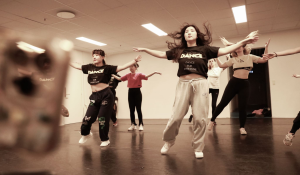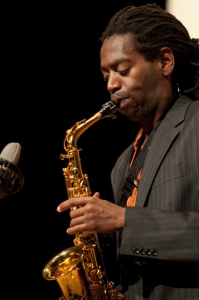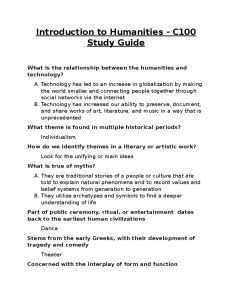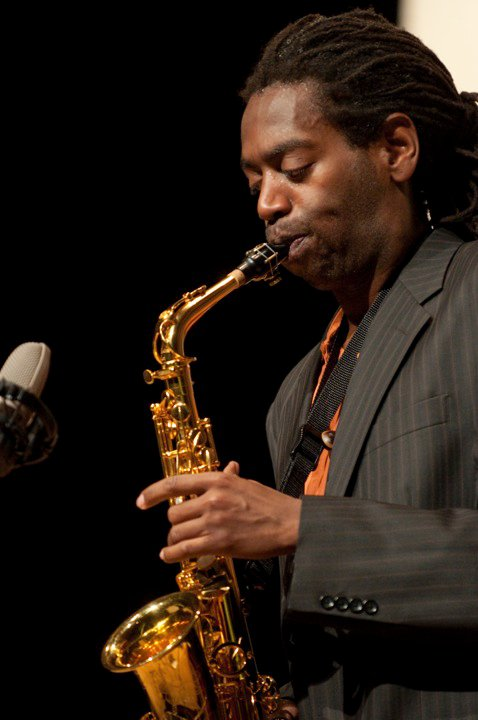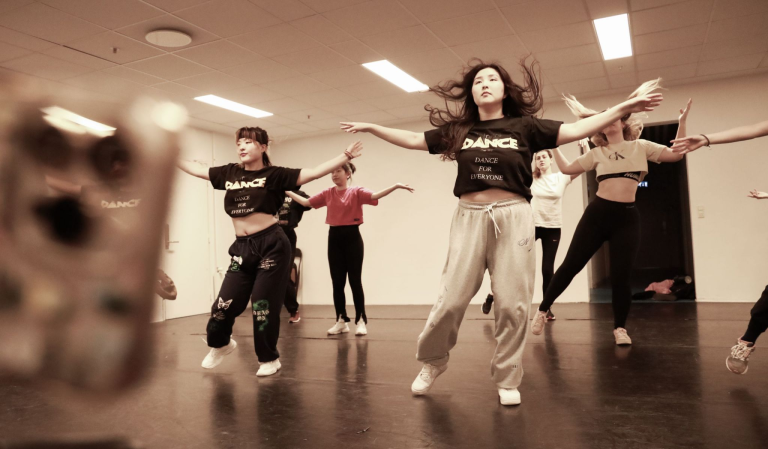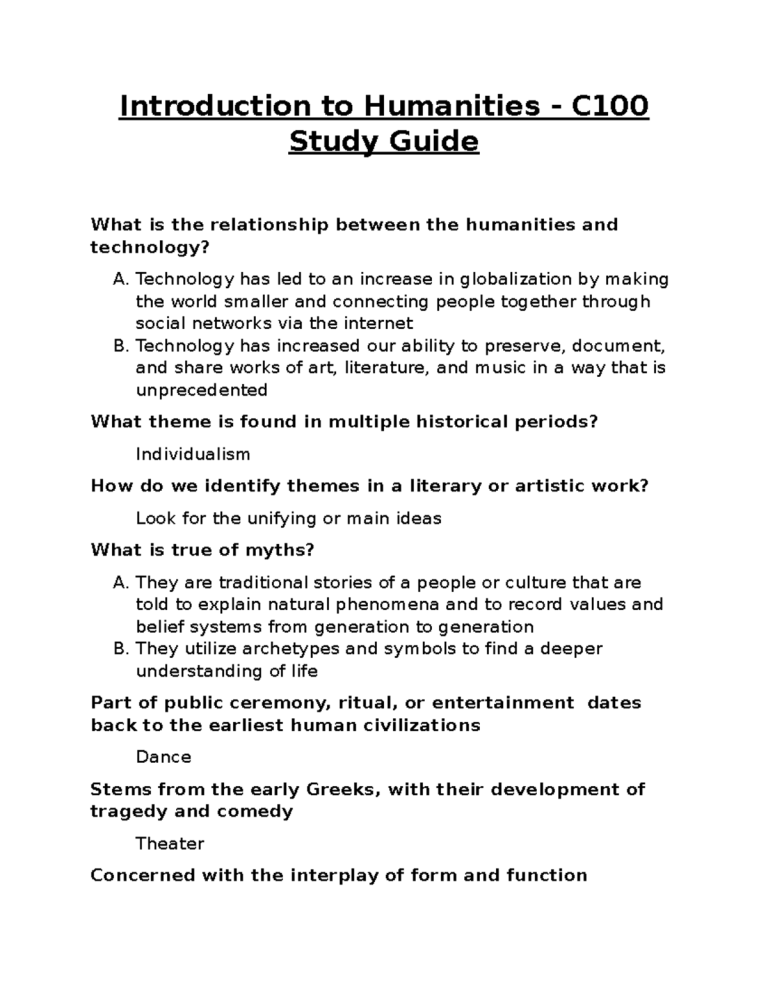Yosvany Terry, an acclaimed musician and composer, plays a pivotal role in bridging the worlds of Cuban music and jazz. With deep roots in the African diaspora, Terry’s artistic journey encompasses the exploration of musical traditions that have shaped contemporary sounds across the Americas. His recent research in Benin and Cuba highlights the cultural exchanges that emerged through centuries of migration and musical evolution. As a senior lecturer at Harvard University, he champions arts collaboration, bringing attention to both historical and modern influences on jazz music. Through his unique perspective, Terry illuminates how these rich traditions not only preserve identity but also inspire new creative expressions within the arts community.
Exploring the intricate tapestry of Afro-Cuban music and jazz, Yosvany Terry stands as a notable figure in contemporary music. His dedication to uncovering the interconnections between African cultural heritage and the Caribbean arts reflects a broader narrative of musical lineage and cultural resilience. The synthesis of these diverse musical backgrounds creates a fascinating dialogue that not only enriches performances but also fosters deeper understanding among students and audiences alike. Terry’s work at Harvard University exemplifies how educational institutions can play a vital role in promoting arts collaboration, ensuring that the legacies of these traditions continue to resonate in today’s musical landscape. As he prepares for upcoming performances, the intersection of cultural roots and modern expression promises to engage and inspire all who partake in this vibrant artistic exchange.
The Cultural Journey of Yosvany Terry
Yosvany Terry, a prominent figure in the world of music, serves as a bridge between the rich cultural landscapes of Cuba and West Africa. His recent journey through Benin not only highlights his commitment to understanding African diaspora influences but also emphasizes the significance of preserving cultural heritage. As a senior lecturer at Harvard, Terry integrates the lessons learned from his travels into his curriculum, equipping students with invaluable insights into the foundations of modern jazz and the deep-rooted traditions that have shaped it. This cross-cultural exploration enriches the educational experience, shedding light on how Cuban music is intricately woven with African rhythms and melodies.
In this global age, collaborations across cultural boundaries are essential in the arts. Terry’s work exemplifies how music can be a conduit for storytelling and cultural preservation. By bringing the sounds of the African diaspora to the forefront in his performances and lectures, he not only honors his heritage but also urges others to engage with the historical narratives behind the music. His commitment to educating students about the interconnection of global musical traditions underscores the need for a broader understanding of how cultural exchanges have shaped contemporary genres and art forms.
The Influence of African Diaspora on Jazz Music
The influence of the African diaspora is profound within jazz music, a genre that has roots intertwined with the stories of resilience and cultural survival. Yosvany Terry’s research aims to illuminate these connections, showcasing how the rhythms and melodies of West African music filtered into the Caribbean and, eventually, into North American jazz. The enduring legacy of these musical traditions serves as a testament to the creativity and adaptability of cultures impacted by colonialism and the transatlantic slave trade. Understanding these influences not only enriches our appreciation of jazz but also allows us to witness the ongoing evolution of this genre, which continues to draw from its historical past.
Moreover, the blending of African and Cuban musical elements creates a unique sound that resonates with audiences on a global scale. Terry’s perspective as a musician and scholar is vital in contextualizing the complexities of jazz’s development. By merging theoretical knowledge with practical performance, he demonstrates how these cultural elements manifest in contemporary music. This blending not only showcases the artistry involved but also serves to educate a new generation about the importance of recognizing the inherent connections across different musical traditions.
Exploring the Roots of Cuban Music
Cuban music, with its infectious rhythms and vibrant melodies, is a direct descendant of various African musical traditions that were preserved despite centuries of colonization and oppression. Yosvany Terry emphasizes the importance of understanding these roots through his research, which highlights how Cuban musical forms are influenced by a dialogue between African, Spanish, and indigenous music. This rich tapestry of influences results in a dynamic cultural exchange that has given rise to genres such as son, salsa, and rumba, which are now celebrated worldwide.
By exploring these roots, Terry aims to create an educational framework that helps students and audiences appreciate the historical context of Cuban music. His performances and academic endeavors serve as a reminder that music is not merely entertainment; it embodies the stories, struggles, and triumphs of its people. In recognizing the complexities of Cuban musical heritage, enthusiasts can better understand the significance of preserving these traditions and promoting them in contemporary contexts, ensuring that they remain a vital part of our cultural identity.
Arts Collaboration at Harvard University
The collaboration between departments at Harvard University plays a crucial role in the advancement of the arts. Through initiatives like ArtsThursdays, Yosvany Terry and his colleagues foster an environment that encourages creative exchanges among artists, students, and faculty. This interdepartmental cooperation amplifies the visibility of artistic endeavors, allowing diverse voices and perspectives to enrich the university’s cultural landscape. The fusion of academia with practical arts practices not only enhances learning experiences but also creates lasting connections that inspire students and artists alike.
Furthermore, this collaborative approach aligns with Harvard’s commitment to fostering inclusivity and diversity within the arts. By bringing in artists from various backgrounds, including those with Afro-Latin heritage, Terry advocates for a more comprehensive understanding of musical traditions and their impact on contemporary arts. Through these collaborative efforts, students are exposed to a multitude of styles, techniques, and narratives that broaden their artistic horizons, encouraging them to appreciate the interconnectedness of global cultural practices.
Yosvany Terry’s Future Aspirations in Arts Education
As Yosvany Terry looks to the future, his aspirations for arts education at Harvard focus on expanding the availability of diverse musical traditions. Building on his ten years of experience, he envisions a dynamic curriculum that evolves in response to the needs of students and the cultural landscape. This forward-thinking approach reflects a deeper understanding of the importance of diversity and representation within the arts, ensuring that students receive a comprehensive education that reflects the richness of global musical traditions.
In pursuit of these goals, Terry emphasizes the significance of collaborative projects that connect students with visiting artists and experts from around the world. By creating opportunities for students to engage with various musical techniques and philosophies, he aims to cultivate a new generation of artists who are not only technically proficient but also culturally aware. Terry’s commitment to this vision reinforces the idea that education in the arts is not static; it must continuously adapt to incorporate new voices and perspectives that honor the diverse heritage that shapes our collective creative future.
Connecting the Past with the Present in Music
Yosvany Terry’s work serves as an embodiment of the vital connection between historical musical practices and contemporary art. By investigating the roots of jazz in both African and Cuban traditions, Terry is able to demonstrate how the lessons from the past influence present music-making. This approach not only enhances the performances he undertakes but also deepens the understanding of students who engage with this material. His commitment to preserving these connections ensures that the cultural significance of music is always acknowledged and integrated into modern interpretations.
Moreover, Terry’s upcoming opera project reflects the importance of storytelling within music. By focusing on historical figures who fought against colonial oppression, he connects the struggle for identity and freedom with the art of performance. This serves as a poignant reminder of the role that music plays in narrating our histories, giving voice to those who were silenced. By bridging the past with the present, Terry encourages audiences to reflect on their own identities and the cultural narratives that continue to shape our world.
Social Change Through Musical Engagement
Yosvany Terry’s research and practice highlight how music can serve as a powerful tool for social change. By exploring the musical traditions that originated from the African diaspora, he underscores the importance of cultural preservation in the face of social justice issues. Terry’s efforts to educate students about these traditions involve instilling a sense of responsibility to uphold and celebrate the diversity that resides within musical practices. This connection between music and activism encourages individuals to appreciate artistic expression as a form of resistance and empowerment.
In recent performances and workshops, Terry has integrated discussions surrounding the historical and social contexts of the music he presents. This method not only enriches the audience’s experience but also fosters a deeper understanding of how art can influence societal perceptions and drive change. As he continues to engage students and communities through music, Terry exemplifies the role of the artist as an advocate, inspiring others to use their creative platforms to address pressing social issues and contribute to an inclusive cultural discourse.
Impact of ArtsThursdays in the Community
ArtsThursdays, a notable initiative at Harvard University, has significantly impacted the relationship between the university and the surrounding community. By providing free access to a range of artistic performances, ArtsThursdays not only engages Harvard students but also invites locals to experience the artistic talents of faculty members like Yosvany Terry. This accessibility fosters a sense of community and engagement with the arts, bridging the gap between academia and the public, promoting cultural exchange in both directions.
Through programs like ArtsThursdays, Terry’s work as a performer and educator allows for a tangible connection between the research he conducts and the art he presents. This initiative promotes an understanding of the artistic process that begins with research and culminates in performance, highlighting the value of art in educational settings. By creating opportunities for dialogue and interaction within the local community, ArtsThursdays reinforces the role of the arts as a vital force for education, inspiration, and connection among diverse groups of people.
Embracing Global Musical Traditions
In a world increasingly interconnected through technology and cultural exchange, embracing global musical traditions has never been more important. Yosvany Terry’s teaching philosophy reflects this understanding, as he encourages students to explore the intersections of various musical genres, particularly those rooted in the African diaspora. By incorporating elements from both Cuban and West African music into his curriculum and performances, he fosters a learning environment that celebrates diversity and cultural exchange.
Understanding global musical traditions allows students not only to develop their skills as musicians but also to cultivate a sense of global citizenship. As they engage with diverse musical heritages, they gain insights into the broader narrative of human experience. Terry emphasizes that music has the power to transcend boundaries, offering students a unique perspective on how cultural traditions intermingle to create the rich tapestry of today’s musical landscape. This approach encourages respect for cultural differences and fosters a collaborative spirit among aspiring artists.
Frequently Asked Questions
What role does Yosvany Terry play in enhancing Cuban music at Harvard University?
Yosvany Terry is a senior lecturer on music and the director of the Harvard Jazz Ensembles, where he directly influences the study and appreciation of Cuban music. His efforts include bringing insights from his research on the African diaspora’s impact on Cuban music and jazz, enriching the curriculum and student experiences.
How does Yosvany Terry’s research link Benin’s musical traditions with jazz music?
Yosvany Terry’s research reveals how the musical traditions of Benin, rooted in the African diaspora, have influenced jazz music in the Americas. By studying these connections, Terry emphasizes how cultural heritage and traditions have survived and evolved, notably through the lens of his Cuban background.
What initiatives has Yosvany Terry been involved with at Harvard to promote arts collaboration?
Yosvany Terry actively participates in initiatives like ArtsThursdays at Harvard, which promotes collaboration across various artistic disciplines. His work encourages engagement between students and artists from diverse backgrounds, enhancing the understanding of arts and culture, specifically regarding Cuban and jazz music traditions.
What impact does Yosvany Terry hope to achieve through his teaching and performances at Harvard?
Through his teaching and performances, Yosvany Terry aims to deepen students’ understanding of jazz music and its Afro-Cuban roots. He seeks to inspire students to appreciate cultural identity and musical traditions, potentially leading them to advocate for and continue exploring these rich heritages.
How does Yosvany Terry’s work address the preservation of African diaspora musical traditions?
Yosvany Terry’s work focuses on preserving African diaspora musical traditions by conducting research in Benin and performing in Cuba. He emphasizes the importance of safeguarding cultural identity through music and uses his findings to educate students about these significant influences on contemporary musical forms.
What unique experiences does Yosvany Terry provide for students in the Harvard Jazz Orchestra?
Yosvany Terry enriches the Harvard Jazz Orchestra by facilitating travel to countries like Cuba and the Dominican Republic, where students engage with local musicians and learn about their cultural traditions. These experiences help students gain a deeper appreciation of jazz music’s roots and its cultural significance.
How does Yosvany Terry contribute to the dialogue between music and technology at Harvard?
Yosvany Terry collaborates with colleagues, such as electrical engineering professor Demba Ba, exploring how AI can enhance the understanding and application of musical traditions. This innovative intersection of music and technology aims to teach flexibility in composition, particularly regarding often overlooked African traditions.
What can audiences expect from Yosvany Terry’s upcoming performance, ‘Imaginary Dialogues: Dahomey’?
Audiences at Yosvany Terry’s performance ‘Imaginary Dialogues: Dahomey’ can expect a rich exploration of the connections between African and Cuban music traditions. The performance will incorporate insights from his research in Benin, showcasing the vibrant dialogue between these cultures through music.
| Key Points |
|---|
| Yosvany Terry researches the connections between the musical traditions of Benin and the Caribbean, focusing on safeguarding culture and identity through music. |
| His studies highlight the influence of African diaspora on modern jazz, depicting how West African traditions profoundly impacted music in the Americas. |
| Terry aims to integrate his findings into his teaching at Harvard, offering students access to primary source materials related to cultural preservation. |
| He emphasizes the significance of collaboration in arts education, inviting diverse artists and blending various musical traditions. |
| The ArtsThursdays initiative enhances visibility for the arts and encourages community engagement through free performances and workshops. |
| Terry’s work and performances aim to bridge the gap between history and contemporary art forms, encouraging students to embrace the richness of cultural traditions. |
Summary
Yosvany Terry is an influential figure in the music world, dedicating his research to exploring the rich interplay between African and Caribbean musical traditions. His commitment to preserving and sharing the history of these musical roots not only enhances the cultural fabric of Harvard but also significantly influences the broader community. Through collaborative performances and education, Terry exemplifies the transformative power of music as a tool for cultural identity and expression.
